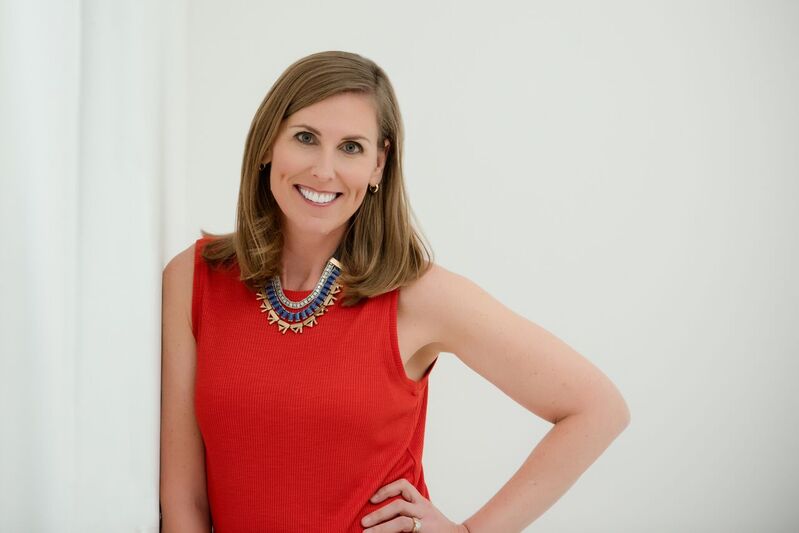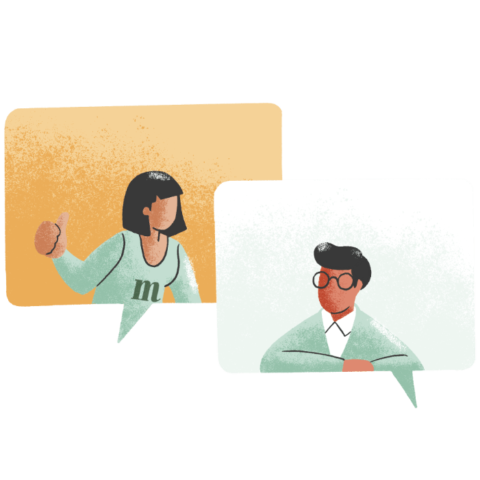In honor of Colorectal Cancer (CRC) Awareness Month, we were delighted to host Stage IV survivor and merakoi patient expert, Stacy Hurt, as our LinkedIn Live guest on Thursday, March 17th, 2022.
A 20+ year award-winning healthcare executive, Stacy has worked cross-functionally in physician practice management and pharma across sales, marketing, training, operations, customer service, IT, and human resources.
Along the way of building her career, Stacy also successfully navigated two devastating diagnoses: her younger son’s rare disease, which renders him intellectually and developmentally disabled and requires 24/7 care, and her own survivorship of stage IV colorectal cancer.
Stacy now serves as a global patient advocate and is a Patient Engagement Consultant representing patients as stakeholders in clinical decision making, policy formation, health IT user experience, and pharma/biotech drug development.
In this post, we highlight some of the key points from our discussion. It is just a small sample of the fascinating conversation we had with Stacy, so if you are interested in learning more, be sure to watch the recording on our YouTube channel.
Stacy has recently been recognized by Medika Life as one of the Top 50 Most Influential Voices of Healthcare - an honor which Stacy was quick to point out is not about “tooting our own horn.” Rather, “being on that list just continues the work that we need to do to change our system for the better.”
“Being on that list is me representing patients and caregivers because that’s what I do every day. I’m just the medium. I'm just the go-between the patient and their journey and what they're going through and how they need our system to work better for them and me taking that to people who need to hear it and make the changes. I'm just continuing the work of getting these stories out there.”
The story of Stacy’s own advocacy journey began when her younger son, Emmett was diagnosed with a very rare chromosome abnormality. It is a rare disease that leaves him nonverbal, nonambulatory, and in need of care 24 hours a day. Stacy had taken a break from her career as a healthcare executive to take care of her son’s needs, but then she was hit with her own diagnosis of stage four colorectal cancer shortly after returning to work.
This double blow to Stacy’s family’s healthcare precipitated a change in career, and she described for us how she has “continued forward to this sort of emerging career that I'm developing as a patient engagement consultant and really connecting the dots or closing the gaps between those who work in health care and the ultimate end-user, which is the consumer and the patient who are the recipient of those services.”
Stacy shared her experience battling the insurance companies to get her son the nursing services, medication, and equipment he needed. Her professional background stood her in good stead.
“Because I worked in healthcare, I knew the verbiage and what you had to say to get these things approved and the hoops that you had to jump through to get these things approved,” she explained.So I sort of became an expert at appeals and then I started sharing that knowledge across the rare disease community.”
After being diagnosed with Stage IV cancer, Stacy found herself sharing her own survival playbook with the cancer community and giving advice to patients appealing insurance decisions.
From these beginnings, Stacy’s influence and impact in patient communities grew. And when she came through her cancer diagnosis and treatment, which she calls “a complete miracle,” she began to look around and see that technology is going to change everything.
“Technology is going to be that third voice in the room. When there's the physician and the patient, technology is going to be that third party in the continuum of care.”
“I think when you talk about that third voice in the room and people get a little freaked out by artificial intelligence. The perception is Big Brother. And this is part of digital literacy, health literacy, tech literacy for companies to take that extra step and make consumers understand that they can trust A.I., that it's a friend that is here to help your care and make your care better.”
“We have a huge trust problem in the world right now. We need to overcome that for technology.”
“You're only as good as what you understand about your plan and what you can execute. The doctor can give you the best plan in the world, but if you don't understand it, if you're not able to follow it, if you don't have the tools or the resources necessary to do it, to execute it, forget that plan. It is not going to happen.”
“If we're true leaders, then we're in the space that we are. We need to go 180 degrees to the space where we are not and figure out what those people's challenges are, what their problems are, and what their day-to-day life looks like. Assuming people have broadband access - people are going to libraries and coffee shops to get on broadband. That's the reality in an underserved area every day. And taking a bus or a subway or other public transit to even get to that place of access. And if we're not taking that into account in every single solution we develop, we're missing it.”
One thing that Stacy is passionate about is that involving patients in healthcare design should never be tokenistic or transactional. It needs to go much deeper.
Calling “upon every company out there to have a patient, someone who identifies as a patient on your executive team, on your leadership team,” Stacy pointed out that discounting or marginalizing patients due to perceived limitations means that “you're missing an entire perspective of lived experience.”
“The lived experience is not something that you can teach or have a one-day training program on.”
“That patient has to be part of your everyday workflows, your everyday drug development, policy development, strategy development within a company,” she said.
This is not to discount making accommodations when needed, but these days more than ever it is easy to do so.
“We now know we can do Zoom meetings, we can work from home and not miss a beat and be every bit as efficient,” Stacy pointed out. “So we know that's possible. But understanding that, yes, we do have disabilities. We do have certain things that we have to deal with. But those are easy to work with. Make the accommodations and make sure you're including that patient-caregiver lived experience voice.”
Citing the example of attending the annual ASCO (American Society of Clinical Oncology) conference, which extends free patient advocate registration, and also provides a dedicated lounge for patients, Stacy suggested that oncologists should visit patients in the lounge. “Come over and sit down and have lunch with us and talk to us. And let's just have a little fireside chat. And then at the oncologist lounge, have patients come in.”
Taking this suggestion further, Stacy presented us with a scenario where “every panel on stage, instead of just having a patient get up and speak, every panel should be integrated. Every panel should be patients and oncologists and researchers up there talking together about what's important.”
This of course doesn’t just apply to conferences. It goes across the board.
“Every patient experience conversation should have a patient.”
When it comes to digital health, data is the fuel that drives the engine, but the question of ownership of patient data is one that is hotly debated.
Stacy is unequivocal that patients own their own data. “This is our data. And of course, every pharmaceutical company, biotech company, health tech company is capturing data. Patients need to know that. You need to tell us that you're doing that and you need to tell us what you're using that data for - if you're selling that data.”
Using the analogy of your best friend borrowing your car, Stacy explained “it’s okay that your best friend borrows your car. Your best friend needs a ride, has to get to an appointment and wants to borrow your car. Just tell me what you need it for. Don't make me look in my driveway and see it's gone. You need to have that conversation at the beginning.”
On the topic of data ownership, a question was put to Stacy from the audience, “what would you personally do with your data?” Stacy responded by saying, “every day I try to figure out why I did everything right and my son suffers and I got cancer. I mean, we'll never know the answers. Things just happen. You know it's genetics. But I think more importantly, what I did right, that I could help somebody else with. So everybody always asked me, how did you beat stage four cancer? And again, I don't know. My oncologist doesn't even know. would I would look at every single thing that I've done in my son's journey and in my journey and try to help somebody else. That would be it. That would be the number one thing that I would do.”
We concluded our conversation by asking Stacy to share a message for colorectal cancer awareness month.
“Get screened. So my biggest thing with colorectal cancer and colon cancer, they're interchangeable, is to initiate a conversation with your healthcare professional about screening. In the US, the screening age was just lowered to 45 and that's due to the incidence in colorectal cancer. In young people age 20 to 49, it's way up. So if nothing else, have a conversation with your doctor about your options for screening. Don't be afraid. No shame, no stigma. Poop is beautiful. Our butts are beautiful. No part of your body is off-limits. Your poop and your bloodwork tell your whole life story. So please from a stage four survivor who never saw it coming, who was the healthiest person she knew, out running the day before her colonoscopy. Please initiate a conversation with your doctor about getting screened for colorectal cancer.”


✕